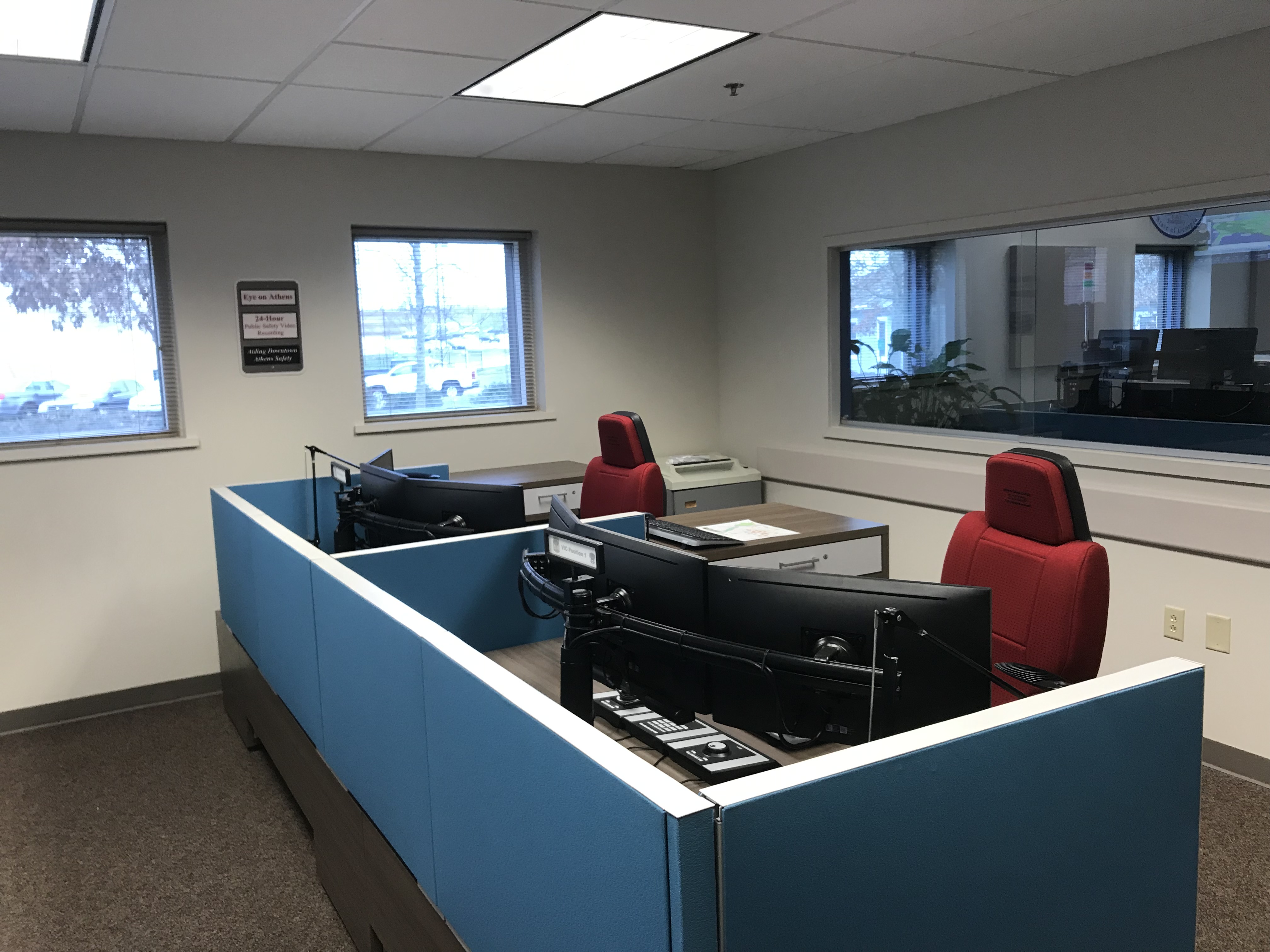Strict procedure and technological innovation has allowed 9-1-1 centers, like those in Athens-Clarke-County, to be able to locate exactly where an emergency call is coming from. They can use this real-time information to readily dispatch the appropriate officers to the scene.
Why It’s Newsworthy: Without 9-1-1 dispatchers across the country, and without the technology to pinpoint where an emergency is happening, it would be near impossible for law enforcement to respond to emergencies happening in areas under their jurisdiction. The Athens-Clarke-County Police Department, according to Public Information Officer Geoff Gilland, receives approximately 100,000 calls to their 9-1-1 centers every year, and they have perfected a 9-1-1 caller procedure using highly trained staff and advanced operating systems.
RapidSOS
One of the key tools 9-1-1 dispatchers in Athens-Clarke County use to help speed up response time is RapidSOS.
RapidSOS, created in 2012, is a software implemented into the precinct computer system that helps accurately locate where a 9-1-1 call is coming from.
RapidSOS has since partnered up with the MedicAlert Foundation. With access to life-saving data, like specific ailments or situations that pertain to a specific caller, RapidSOS sends life-saving data to first responders. RapidSOS founder and CEO, Michael Martin, told PR Newswire that this partnership was a “breakthrough for better informed emergency response.
When a call comes into the dispatch, RapidSOS automatically transfers the location information onto a satellite map on a monitor at the 9-1-1 center. The location information automatically updates in real-time. If, for example, someone was driving a car while on a 9-1-1 call, the RapidSOS system will track that caller’s movement for the dispatchers to send resources to the proper location.
“RapidSOS is one of those pieces of technology that will, once its fully integrated into our system, dramatically change the way we keep up with the location of people in emergency situations,” Gilland said.
The Process
According to the National 9-1-1 Program Review, police precincts in the United States received almost 200 million 9-1-1 calls in 2017. With such a large volume of calls coming in, and some coming simultaneously, dispatchers have to follow correct procedure quickly to send help.
Police department 9-1-1 centers, like the one at the Lexington Road Precinct in Athens-Clarke County, follow a step-by-step process whenever they receive an emergency call.
“It’s a fairly simple system with a lot of electronic underneath that makes it very simple for our dispatchers to send EMS, fire or police officers,” Gilland said.
When a call comes into the 9-1-1 center, a communications officer will identify where the caller is using RapidSOS, and also identify the nature of the caller’s emergency. That communications officer can then digitally send that information to a dispatcher, who will relay the specifics to the appropriate law enforcement officers.
Human Touch
Technology has made it much easier and more efficient to dispatch help to those in need following a 9-1-1 call, but it seems that there will always be a need for a human on the other line.
Tools like RapidSOS and the automatic dispatch radio make for a smoother, easier process than running solely on man power, but people in emergency situations need reassurance that help is indeed on the way and when that help will get there.
Highly trained communications officers and dispatchers at the Athens-Clarke County 9-1-1 center go through an extensive year-long training program to get acquainted with all of the advanced technology that is in the room. Gilland says that these people are the reason the system works so efficiently.

“Yes, there are opportunities for humans to be eliminated from the process, but in an emergency situation, the best thing we can do is provide a 9-1-1 operator who is a human,” Gilland said.
Jason Levenstiem is a fourth-year journalism major in the Grady College of Journalism and Mass Communication at the University of Georgia.







